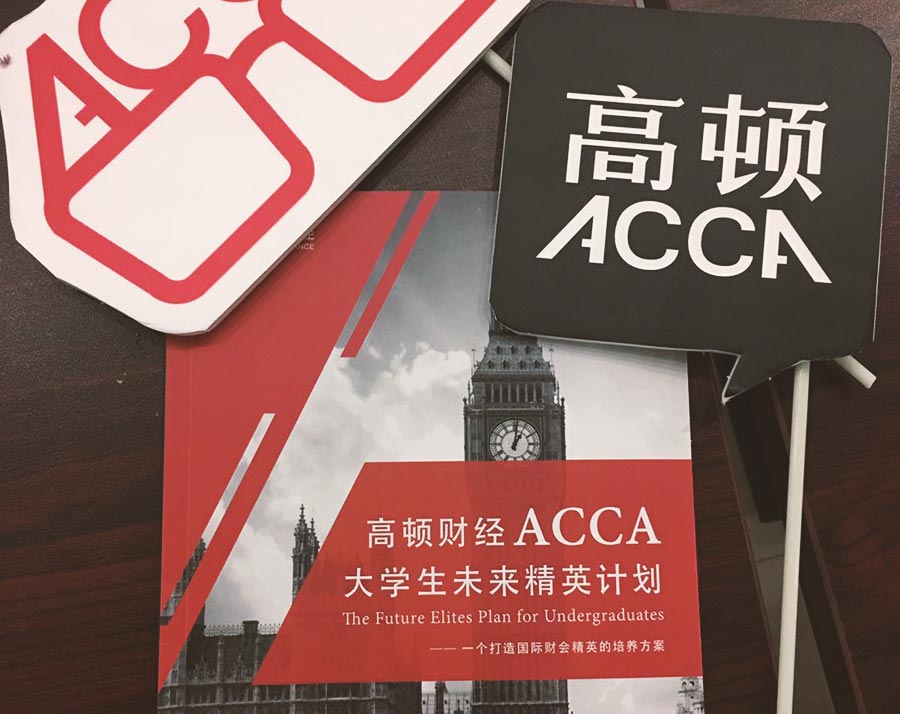
ACCA《F8审计与认证业务》精选模拟题
- 2015年05月18日
- 11:10
- 来源:高顿财经
- 阅读:(181)
2023ACCA备考资料
- 财务英语入门
- 历年考题答案
- 2023考纲白皮书
- 2023考前冲刺资料
- 高顿内部名师讲义
- 高顿内部在线题库
摘要:【高顿ACCA小编】2015年 ACCA 考试即将开始,我们将第一时间公布考试相关内容,请各位考生密切关注高顿ACCA,预祝大家顺利通过ACCA考试。今天为大家带来的...
【高顿ACCA小编】2015年ACCA考试即将开始,我们将第一时间公布考试相关内容,请各位考生密切关注高顿ACCA,预祝大家顺利通过ACCA考试。今天为大家带来的是ACCA《F8审计与认证业务》精选模拟题。
一.应收帐款及应付帐款在全年均维持在一个稳定的水平。
一.应收帐款及应付帐款在全年均维持在一个稳定的水平。
Fundamentals Level – Skills Module, Paper F8
1 (a) Audit strategy document
Section of document Purpose Example from B-Star nderstanding the entity’s environment Provides details of the industry area that Size of the theme park sector and the company is in along with specific expected growth over the next few years.
information about the activities and strategies of the individual client.
Understand the accounting and internal Details of accounting policies of the Accounting policy for sales – sales are control systems client and previous assessments of stated net of sales taxes.
internal control systems indicating the Reliance on control systems in B-Star expected extent of reliance on those may be limited due to lack of systems.
documentation of controls.
Risk and materiality The assessment of risk for the client and Materiality for sales to be 5% of turnover.
the risk of fraud and error and the B-Star receives cash sales – audit work identification of significant audit areas.
required to determine the completeness The materiality level for audit planning of sales.
purposes.
Timing and extent of audit procedures Details of the focus on audit work on Audit software could be used to provide specific areas. Detail on the extent of use analytical procedures on the sales of audit software and possible reliance B-Star on internal audit.
Co-ordination, supervision and review of Details the extent of involvement of B-Star has only one location – audit staff audit work experts, client locations and staffing will be required to work there for X requirements for the audit. weeks.
(b) (i) Risk affecting completeness
– The computer system does not record sales accurately and/or information is lost or transferred incorrectly from the ticket office computer to the accounts department computer.
– Cash sales are not recorded in the cash book; cash is stolen by the accounts clerks.
– Tickets are issued but no payment is received – that is the sale is not recorded.
– Cash is removed by the ticket office personnel, by the security guards or by the account clerks.
– The account clerks miscount the amount of cash received from a ticket office.
(ii) Use of tests of controls and substantive procedures
Tests of controls
Tests of control are designed to ensure that documented controls are operating effectively. If controls over the completeness of income were expected to operate correctly, then the auditor would test those controls.
In B-Star, while controls could be in operation, e.g. the account clerks agreeing physical cash to computer summaries, there is no indication that the control is documented; that is the computer mary is not signed to show the comparison has taken place. The auditor could use the test of inquiry – asking the clerks whether the control has been used, and observation – actually watching the clerks carry out the controls. As noted above though, lack of documentation of the control does mean relying on tests of control for the assertion completeness of income has limited value.
Substantive procedures
Substantive procedures include analytical procedures and other procedures.
Substantive procedures include analytical procedures and other procedures.
Analytical procedures include the analysis of significant ratios and trends and subsequent investigation of any trends or relationships that appear to be abnormal. These procedures can be used effectively in B-Star as an approximation of income that can be obtained from sources other than the cash receipt records.
Other procedures, or tests of detail, are normally used to verify statement of financial position assertions and include obtaining audit evidence relevant to specific assertions. However, they could be used in B-Star to trace individual transactions through the sales/cash systems to ensure all ticket sales have been recorded (completeness assertion). The use of other procedures will be time nsuming.
(二).应收帐款及应付帐款在全年均维持在一个稳定的水平。
(e) Letter to Mrs Keefer
Der Mrs Keefer,
Internal control issues within Global-bank
I have been asked by the trustees of the Shalala Pension Fund to convey our expectations of you in respect of your roles andresponsibilities in internal controls. We very much regret the circumstances that have made this reminder necessary. In linewith the COSO recommendations, the trustees of the Shalala Pension Fund expect you to adopt four major responsibilities inrespect of overseeing internal controls in Global-bank.
At the outset, the trustees of the Shalala Pension Fund would like to express their disappointment that you should suggest,as you did at the recent EGM, that the loss incurred by Mr Mineta was ‘genuinely unforeseeable’. From our reading of thesituation, you are highly complicit in the loss through your failure in respect of the company’s internal controls.
Ultimately, it is the chief executive of any organisation who must assume final responsibility for all internal controls. It is youas CEO who must assume ‘ownership’ of the systems and this ownership must be a part of the manner in which you leadthe company. In particular, this means that you must set the tone from the top in both establishing and enforcing the controlenvironment. We understand that a number of failures to return compliance information from Philos were not acted uponand this is a clear failure on head office’s part to enforce the internal control environment throughout the company. The controlenvironment is enforced through having internal control compliance embedded within the culture of the company and it was,in our view, clearly your responsibility to facilitate this. From what we can gather, the culture in the Philos office was moredriven by Mr Evora’s personality than by your imposition of norms from head office and this was clearly one of the causes ofMr Mineta’s behaviour.
This setting of the tone should express itself in terms of the way that managers are treated and the way that the tone iscascaded down through the company including to individual branch offices such as Philos and other subsidiary companiesif relevant. It seems self-evident, in hindsight, that the Philos office felt they could act in breach of the relevant internalcontrols with impunity and this most certainly should not have been allowed. Finally, as major shareholders in Global-bank,the Shalala trustees expect you to pay particular attention to those areas most vulnerable or open to damaging breaches.
The financial products being traded at Philos clearly fit into this in our view as the company has demonstrated its vulnerabilityto losses on derivatives trading when inadequately controlled.
In addition, I have been asked in particular to draw your attention to the failure of the company to operate an effective internalaudit function. We understand that the audit committee has been compromised by a shortage of members to the point thatits reporting was criticised by the external auditors. The Shalala Pension Fund considers the internal audit function to be animperative part of the governance structure and we are disappointed that you have seemingly failed to give it the priority itclearly deserves. We trust that recent events have reinforced this importance to yourself and other members of the
Global-bank board.
I would emphasise again the seriousness with which the trustees of the Shalala Pension Fund view your management failuresin this unhappy episode and we look forward to hearing your considered responses to the points made.
Yours sincerely,M. Haber.
On behalf of Shalala Pension Fund.
[Tutorial note: underlined points are the CEO’s responsibilities; italicised points are the criticisms of Mrs Keefer. Allow for arange of ways of expressing these points.]
2 (a) Explain ‘the public interest’Public interest concerns the overall welfare of society as well as the sectional interest of the shareholders in a particularcompany. It is generally assumed, for example, that all professional actions, whether by medical, legal or accountingprofessionals, should be for the greater good rather than for sectional interest.
Accounting has a large potential impact and so the public interest ‘test’ is important. Mrs Yeo made specific reference to auditand assurance. In auditing and assurance, for example, the working of capital markets – and hence the value of tax revenues,pensions and investment – rests upon accountants’ behaviour. In management accounting and financial management, thestability of business organisations – and hence the security of jobs and the supply of important products – also depends onthe professional behaviour of accountants.
(三).应收帐款及应付帐款在全年均维持在一个稳定的水平。
Professional Level – Essentials Module,
Professional Accountant
1 (a) (i) Three Kohlberg levels
At the preconventional level of moral reasoning, morality is conceived of in terms of rewards, punishments andinstrumental motivations. Those demonstrating intolerance of regulations in preference for self-serving motives aretypical preconventionalists.
At the conventional level, morality is understood in terms of compliance with either or both of peer pressure/socialexpectations or regulations, laws and guidelines. A high degree of compliance is assumed to be a highly moral position.
At the postconventional level, morality is understood in terms of conformance with ‘higher’ or ‘universal’ ethicalprinciples. Postconventional assumptions often challenge existing regulatory regimes and social norms and sopostconventional behaviour is often costly in personal terms.
Level 1: Preconventional level
Stage/Plane 1: Punishment-obedience orientation
Stage/Plane 2: Instrumental relativist orientation
Level 2: Conventional level
Stage/Plane 3: Good boy-nice girl orientation
Stage/Plane 4: Law and order orientation
Level 3: Postconventional level
Stage/Plane 5: Social contract orientation
Stage/Plane 6: Universal ethical principle orientation
(ii) The level that Jack Mineta operated at
The evidence from the case suggests that Mr Mineta operated at the preconventional level. Although he seemed lessconcerned with punishment, his actions were strongly driven by the incentives of financial rewards suggesting a rewardsorientation consistent with preconventional thinking. He seemed prepared to ignore internal control systems (‘I’m in thisjob for what I can get for myself – big risks bring big returns and big bonuses for me.’). The internal control systems at
Global-bank placed clear limits on traders’ behaviour in terms of limits and exposure to the highest risk derivativeinstruments. Mr Mineta was unconcerned about compliance with controls and prevailing rules would have suggestedconventional thinking. Had he complied with the internal control constraints, he would not have lost the large amountof money. Nor would he have made the large prior profits but these were manifestly not sustainable. Miss Hubu’scomment that he ‘didn’t believe in right and wrong’ excludes any suggestion that his ignoring of rules was driven bypostconventional assumptions.
(iii) Stage most appropriate for a professional bank employee
The most appropriate level of moral development for Mr Mineta in his work is stage 4 within the conventional level (level
2). This level stresses compliance with laws and regulations rather than the 3rd stage which is about compliance with
norms to gain social acceptance.
Stage 4 is concerned with legal and regulatory compliance and the moral right is that which is the most compliant withprevailing regulatory systems.
[Tutorial note: it is possible to argue for other stages. Credit should be given for this only when robustly defended withevidence. Unsupported assertions should not be rewarded.]
(b) FIVE typical causes of internal control failure and the performance of Global-bank
There are several possible causes of internal control failure. The UK Turnbull report (in paragraph 22) gives examples ofcauses of failure but this list is not exhaustive.
Poor judgement in decision-making. Internal control failures can sometimes arise from individual decisions being made basedon inadequate information provision or by inexperienced staff.
Human error can cause failures although a well-designed internal control environment can help control this to a certain extent.
Control processes being deliberately circumvented by employees and others. It is very difficult to completely prevent deliberatecircumvention, especially if an employee has a particular reason (in his or her opinion) to do so, such as the belief that higherbonuses will be earned.
Management overriding controls, presumably in the belief that the controls put in place are inconvenient or inappropriate andshould not apply to them.
The occurrence of unforeseeable circumstances is the final cause referred to in the Turnbull Report. Control systems aredesigned to cope with a given range of variables and when an event happens outwith that range, the system may be unableto cope.
Tutorial note: accept other, equivalent explanations or references to other governance codes if valid. Study texts makereference obliquely rather than as a ‘list’ to learn. The above points can be expressed in different ways.
Time allowed
This paper is divided into two sections:
Section A – This ONE question is compulsory and MUST be attempted
Section B – TWO questions ONLY to be attempted
Do NOT open this paper until instructed by the supervisor.
During reading and planning time only the question paper maybe annotated. You must NOT write in your answer booklet untilinstructed by the supervisor.
This question paper must not be removed from the examination hall.
推荐:考生都在用的ACCA资料>>【领取2023ACCA完整资料】 (资料包含ACCA必考点总结,提升备考效率,加分必备)
版权声明:
1、凡本网站注明“来源高顿ACCA”或“来源高顿、ACCA学习帮”,的所有作品,均为本网站合法拥有版权的作品,未经本网站授权,任何媒体、网站、个人不得转载、链接、转帖或以其他方式使用。
2、经本网站合法授权的,应在授权范围内使用,且使用时必须注明“来源高顿ACCA”或“来源高顿、ACCA学习帮”,并不得对作品中出现的“高顿”字样进行删减、替换等。违反上述声明者,本网站将依法追究其法律责任。
3、本网站的部分资料转载自互联网,均尽力标明作者和出处。本网站转载的目的在于传递更多信息,并不意味着赞同其观点或证实其描述,本网站不对其真实性负责。
4、如您认为本网站刊载作品涉及版权等问题,请与本网站联系(邮箱fawu@gaodun.com,电话:021-31587497),本网站核实确认后会尽快予以处理。
分享到:
急速通关计划
ACCA全球私播课
周末面授班
其他课程
报考指南
2023年ACCA备考机经
价值1288元 考试必备资料 免费领取 高顿ACCA研究院独家出品
价值1288元 考试必备资料 免费领取 高顿ACCA研究院独家出品
领取ACCA资料包
大家都在看
-
阅读(200)
-
阅读(200)
-
阅读(200)
-
阅读(200)
-
阅读(200)
日排行 • 周排行
- 1 ACCA《F8审计与认证业务》精选模拟题
- 2 ACCA F4 真题
- 3 ACCA p5真题
- 4 ACCA F7真题
- 5 ACCA p4真题
- 6 ACCA F9真题
- 7 ACCA p1真题
- 8 ACCA F6真题
- 9 ACCA p3真题
- 10 ACCA F8真题
- 1 ACCAf8机考要打字吗
- 2 ACCAf8机考题型吗
- 3 ACCAf8机考难吗
- 4 ACCAf8机考好考吗
- 5 ACCAf7机考好过吗
- 6 ACCAf8机考有选择吗
- 7 ACCAf8变成了机考吗
- 8 ACCAf6是机考吗
- 9 ACCAf6机考可以带什么
- 10 ACCAf5是机考吗
-
ACCA考试热门词
-
ACCA内部备考资料高顿ACCA为您免费提供2023年全新ACCA资料,包括历年考题、考官报考、考官文章、考纲解析、学霸笔记、内部讲义等,同时还助您了解新学员报名注册指南、机考报考考试引导、OBU&UOL申请攻略等,点击免费获取。
-
- ACCA常见问题
- ACCA推荐阅读
- ACCA考试资讯
- ACCA原创文章
- ACCA学霸分享
- ACCA常见问答










